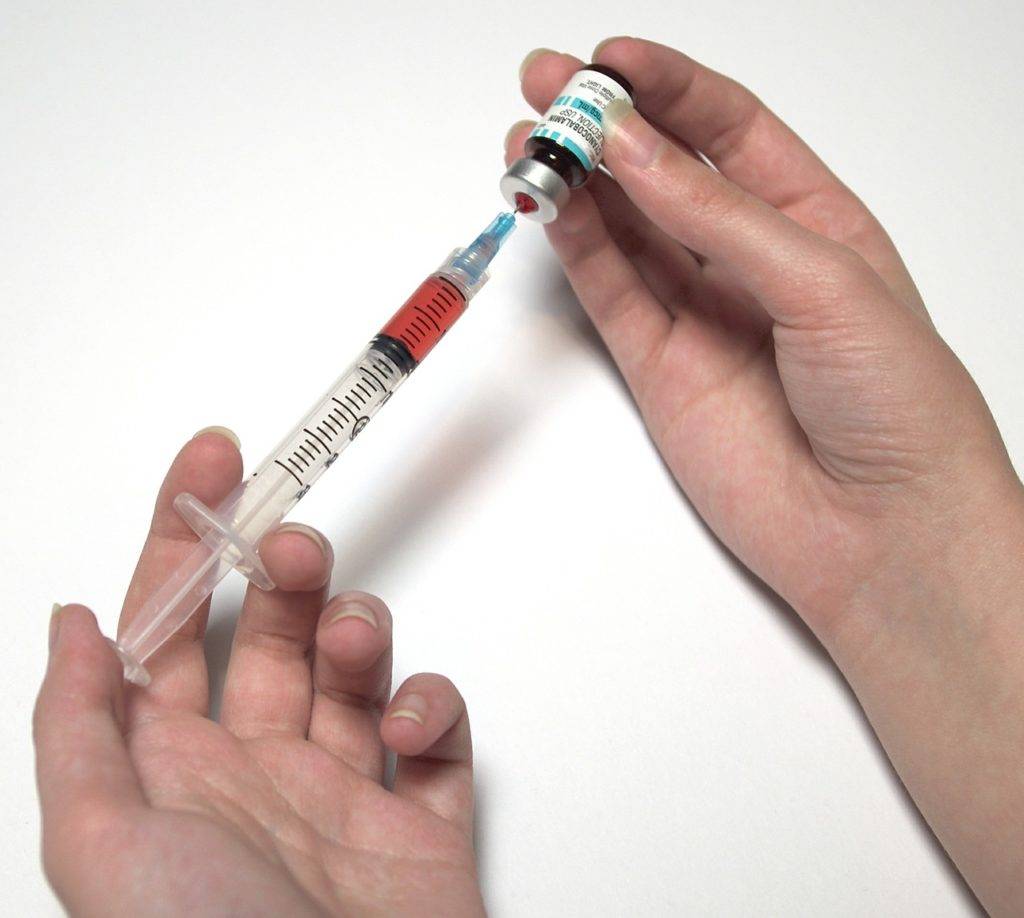The simplest answer for “What is a pediatrician?”
The simplest answer is a medical doctor trained beyond basic physician training in the particular skills necessary to provide:
- Immediate care for acute illness in a newborn, child, teenager, and young adult up to 21 years.
- Ongoing preventive health maintenance in children of all ages.
- Continuous care of chronic illness in children.
Doctors see to the health of a patient and pediatricians as doctors for children see to the optimal mental, physical, and emotional well-being of their patients and not just the absence of disease. This is the WHO definition that has not been amended since 1984. Thus, pediatricians may enlist the help of other healthcare or allied health professionals in the discharge of their duties. These professionals include:
- Dentists and Pediatric Dentists
- Social Workers
- Orthopedic Surgeons
- Plastic Surgeons
- Psychiatrists
They may also involve the school nurses, counselors, and law enforcement agencies.
How Pediatricians Specifically Help Your Child
A pediatrician will assist in ensuring your child stays healthy throughout their childhood by offering a variety of specific services:
If you are expecting a newborn, your pediatrician will usually see your child 2-3 days after birth and regularly perform visits for checkups. These early visits are crucial for the newborn’s health and development.
Main Areas of Focus for Pediatricians
The main areas of focus of a pediatrician’s job relate to:
- Reducing Infant/Childhood Mortality: Implementing strategies to reduce the death rates of infants and children.
- Educating Families: Providing information on illnesses and health, helping families lead healthy lifestyles based on scientific evidence.
- Advocacy: Promoting children’s rights and education.
- Modern Interventions: Encouraging the use of basic hygiene practices and immunizations to prevent infections.
They may also involve the school nurses, counsellors and law enforcement agencies.
Pediatricians engage in a variety of specific activities to ensure the overall health and development of children:
- Regular Checkups and Physical Exams: When your child is a newborn, the pediatrician will see them almost every month for checkups. As they grow older, visits become less frequent, eventually occurring annually unless additional health concerns arise.
- Immunizations: Pediatricians administer vaccines to protect children from common and potentially serious diseases.
- Diagnosis and Treatment: If your child falls ill, the pediatrician diagnoses the condition and provides the necessary treatment to ensure a swift recovery.
- Health Advice: They offer valuable advice on various aspects of a child’s well-being, including health, safety, nutrition, and physical activity.
- Parental Support: Pediatricians are a resource for parents, ready to answer any questions and provide guidance on child-rearing practices.
- Referrals to Specialists: If a child’s condition requires specialized care, the pediatrician will refer families to the appropriate specialists to ensure comprehensive treatment.
Combining their specialized training with a commitment to comprehensive care puts pediatricians in position to play a vital role in your child’s health journey. Their aim is not just to treat diseases but to foster overall well-being, ensuring that every child has the best possible start in life.
Challenges Pediatricians Face
Managing the Family Unit: Many times, families come to see the pediatrician for a sick child, often sleep-deprived, tired, and extremely stressed. This can lead to intense and emotional conversations. Pediatricians need to realize that the family’s anger stems from anxiety and stress about their child’s health. Learning to communicate effectively and calmly with families is a crucial skill for pediatricians.
Solving Medical Mysteries: When children are extremely young, it can be hard for them to communicate with the doctor about what exactly is wrong, what is hurting, and how they are feeling. This makes it challenging for the pediatrician to figure out what is wrong and how to treat them correctly. Parents, who know their children best, become invaluable in helping pediatricians understand their child’s symptoms.
Emotional Toll: One of the most difficult challenges pediatricians face is seeing young children sick and suffering, especially if they lose a child. It is deeply upsetting to witness a family and a child in pain. Nothing can fully prepare pediatricians for this emotional burden.
How Can Parents Ensure Their Children Are Eating Healthy and Getting Enough Exercise?
Ensuring your child maintains a healthy diet and gets sufficient exercise can seem challenging, but with the right strategies, it’s entirely manageable. Here are some practical tips to help you achieve this balance.
Healthy Eating Habits
- Balanced Diet: Make sure your child eats a variety of foods from all food groups—fruits, vegetables, grains, proteins, and dairy. This ensures they receive essential nutrients such as vitamins, minerals, and fiber.
- Portion Control: Serve age-appropriate portions to prevent overeating. Use smaller plates to help control portion sizes visually.
- Limit Sugary and Processed Foods: Reduce their consumption of sugary snacks, sodas, and highly processed foods, which can lead to unhealthy weight gain and other health issues.
- Include Healthy Snacks: Keep an array of healthy snacks at home like fruits, nuts, yogurt, and whole-grain crackers. This helps ensure they have nutritious options available when they’re hungry between meals.
- Family Meals: Try to eat together as a family as often as possible. This not only promotes healthy eating but also encourages family bonding.
Encouraging Exercise
- Daily Playtime: Aim for at least 60 minutes of physical activity each day. This can be broken down into shorter sessions throughout the day, making it easier to fit into a busy schedule.
- Outdoor Activities: Encourage outdoor play, which offers opportunities for running, jumping, and other types of movement that promote cardiovascular health and muscle strength.
- Limit Screen Time: Reduce the amount of time your child spends on screens, including TV, video games, and mobile devices. Increased screen time is often associated with sedentary behavior.
- Enrolling in Sports or Classes: Sign your child up for sports teams, dance classes, or swimming lessons. These structured activities provide regular exercise and help develop teamwork and social skills.
- Active Family Outings: Plan family outings that include physical activities such as hiking, biking, or playing sports together. This sets a positive example and makes exercise a fun family affair.
Monitoring and Support
- Routine Check-ins: Regularly discuss with your child how they feel about their eating habits and physical activities. This opens up lines of communication and allows you to address any concerns early on.
- Stay Informed: Educate yourself about nutrition and exercise recommendations for children. Knowledgeable parents can better guide their children toward healthy choices.
- Modeling Behavior: Children often mimic their parents’ behaviors. By eating healthy and staying active yourself, you set a strong example for your child to follow.
By integrating these strategies into daily life, parents can create a supportive environment that encourages healthy eating and physical activity for their children.
The Omega Promise
Here at Omega Pediatrics in Roswell, GA, we know that the role of the pediatrician is key in the overall health of families that is why we have developed a 3D model of access that ensures that we can be reached at any time by the families we cater for their children. Thus we ensure access and that is one of the pillars of our promise.
What Can Parents Expect During Their Child’s Physical Examination?
Taking your child to their physical examination is a vital part of maintaining their health and well-being. During these check-ups, the doctor will cover several key areas to ensure your child is developing properly and remains healthy. Here’s what you can typically expect:
Sleep Patterns
The doctor will inquire about your child’s sleep habits. They’ll ask questions to determine if your child is getting enough sleep, experiencing difficulties falling or staying asleep, or if they are sleeping too much. Addressing sleep issues early can help mitigate underlying problems that might require additional support.
Safety Concerns
Ensuring your child’s safety both at home and at school is another critical aspect of the examination. The doctor will discuss any potential hazards or safety risks your child may encounter and provide options and strategies to protect them from harm.
Medical History and Childhood Diseases
Discussing your child’s medical history, including any past illnesses or ongoing conditions, helps the doctor stay informed about potential health concerns. This history guides the doctor in monitoring for specific issues during the examination and in the future, ensuring they are prepared to address any recurring or new problems effectively.
Growth and Development
The doctor will review your child’s growth patterns to ensure they are developing at a healthy rate. They will discuss expected milestones and identify any irregularities or developmental delays. If any abnormalities are found, the doctor will inform you about possible treatments and interventions to support your child’s development.
Physical and Emotional Well-Being
The doctor may also evaluate your child’s overall physical and emotional well-being. This includes checking vital signs, performing routine tests, and possibly discussing your child’s behavior and emotional state to ensure a holistic approach to their health.
By understanding these key areas, parents can better prepare for their child’s physical examination and collaborate with healthcare providers to maintain their child’s health.
Why Are Pediatric Physicals Important for Children?
Pediatric physicals play a crucial role in ensuring your child’s health and well-being. These routine check-ups are essential as they help monitor your child’s development and catch any potential health issues early on.
Key Benefits of Pediatric Physicals
- Comprehensive Health Assessment:
- Pediatricians conduct thorough examinations to assess your child’s overall health.
- Evaluations include physical growth, mental development, and social behaviors.
- Early Detection of Health Issues:
- Regular physicals enable early detection and intervention for health problems.
- Early treatment can prevent minor issues from becoming serious conditions.
- Vaccination Updates:
- Physicals ensure your child is up-to-date with vaccinations.
- Immunizations protect against various diseases like measles, mumps, and whooping cough.
- Developmental Monitoring:
- Doctors track milestones to ensure your child is on the right developmental path.
- Delays or irregularities can be addressed swiftly with expert guidance.
- Healthy Habits Encouragement:
- Pediatricians provide advice on nutrition, exercise, and safe behaviors.
- Instilling healthy habits early contributes to long-term well-being.
Specific Areas Assessed During a Physical
- Respiratory System: Ensuring there are no signs of asthma or other breathing issues.
- Cardiovascular System: Checking for heart murmurs or other cardiovascular conditions.
- Vision and Hearing: Testing for impairments that could affect learning and development.
- Musculoskeletal System: Evaluating posture, joint function, and muscle strength.
These evaluations are crucial because they allow doctors to offer personalized care tailored to your child’s unique needs. By making pediatric physicals a regular part of your child’s healthcare routine, you’re investing in their future health, both physically and mentally.
Pediatricians are first to notice
For many conditions of ill health in children, pediatricians are usually the first to notice the abnormalities. This is because the pediatricians build relationships with both the children and their parents, thus establishing a channel of communication. That makes it easier to hear about parental concerns and to notice abnormalities in physical issues (deformities), mental health ( like anxiety or depression), behavior (ADHD, developmental disorders) or functional problems like prolonged bed-wetting or temper tantrums.

Sub-sections of Being a Pediatrician
In the United States as well as in many other countries with increasingly sophisticated health systems, the subset of children being seen and cared for by the general pediatrician has become more segmented as some pediatricians spend extra time in study and research and then graduate to become sub-specialists.
These include:
- Neonatologists – newborn to 1 month of age children including premature infants delivered before they were term.
- Adolescent Medicine Pediatrician who spends more time focused on the problems often seen in adolescents and teenagers.
- Behavioral Pediatrician which is a pediatrician focused more on the behavioral problems of children such as school avoidance, bedwetting, dyslexia, learning disorder autism and Attention Deficit Hyperactive Disorder (ADHD).
As time goes on new sub-specialties will emerge and we will continue to look for ways to keep children healthy.
What training is required to become a pediatrician?
The training to become a pediatrician involves two post-high school phases:
- The individual must first train to become a medical doctor following an undergraduate degree and then the completion of medical school. (6-8 years)
- The second phase is the completion of a pediatric residency training program which (in the United States) must be a program accredited by the Accreditation Council for Graduate Medical Education (ACGME) (3 years)
Many Pediatricians work in hospitals as hospitalists or sub-specialists after additional training. Others work in primary care clinics as pediatricians and help coordinate the medical home for families in the communities.
What should parents do if they have concerns about their child’s health after physical exam?
If parents have concerns about their child’s health following a physical exam, it’s crucial to take immediate action. Here are some steps to follow:
Schedule a Follow-Up Appointment: Contact your child’s doctor to discuss the results in more detail. Early detection and treatment of potential issues can prevent them from escalating.
Keep Track of Symptoms: Write down any specific symptoms or behaviors that worry you. Detailed information can help the doctor make a more accurate diagnosis.
Seek a Second Opinion: If you’re uncertain about the initial findings, don’t hesitate to consult another healthcare professional like those affiliated with Childrens Healthcare of Atlanta, Cleveland Clinic Omega Pediatrics or Mayo Clinic for a second opinion.
Use Reliable Resources: Refer to trusted medical websites such as WebMD or the American Academy of Pediatrics for information that can help you understand your child’s condition better.
Advocate for Your Child: Be persistent in seeking answers and don’t be afraid to ask questions. Your child’s health is paramount, and a proactive approach can make all the difference.
The Benefits of Regular Pediatric Checkups
Regular pediatric checkups play a crucial role in ensuring the well-being of your growing child. These visits offer numerous benefits that help in maintaining and improving your child’s health.
Early Detection of Health Issues
One of the primary benefits of regular pediatric checkups is the early detection of potential health problems. During these visits, doctors can:
Identify and treat any immediate health concerns.
Perform routine screenings for conditions like asthma, allergies, and developmental disorders.
Monitor chronic diseases to prevent complications.
Monitoring Growth and Development
Pediatricians track your child’s physical and mental development over time. They ensure your child is progressing as expected in aspects such as:
Growth Metrics: Checking height, weight, and head circumference.
Developmental Milestones: Evaluating motor skills, social behaviors, and cognitive abilities.
Recommendations for a Healthy Lifestyle
Doctors provide valuable advice tailored to your child’s specific needs. Expect guidance on:
Nutrition: Balanced diets to support growth and development.
Physical Activity: Age-appropriate exercise to foster healthy habits.
Sleep Patterns: Ensuring optimal sleep for physical and mental health.
Vaccinations and Immunizations
Staying up-to-date with vaccinations prevents serious illnesses. Pediatricians:
Administer scheduled immunizations.
Educate parents about the importance of vaccines in preventing diseases like measles, mumps, and influenza.
Promoting Mental and Emotional Well-being
Pediatric checkups also focus on mental and emotional health. Doctors can:
Discuss any behavioral issues or concerns.
Provide support and resources for mental health challenges.
Recommend strategies to handle stress and anxiety.
Safety Advice
Ensuring your child’s safety is a priority during these visits. Expect discussions on:
Home Safety: Childproofing your home to prevent accidents.
School Safety: Addressing bullying, peer pressure, and other school-related concerns.
Cyber Safety: Guidelines for safe internet and social media use.
Conclusion
Regular pediatric checkups are vital for early intervention, tracking growth, promoting a healthy lifestyle, and ensuring both physical and mental well-being. Make these visits a priority to help your child thrive.




